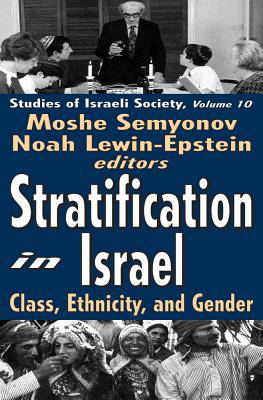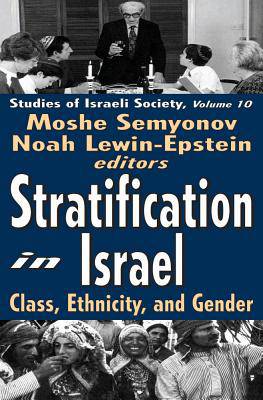
- Retrait gratuit dans votre magasin Club
- 7.000.000 titres dans notre catalogue
- Payer en toute sécurité
- Toujours un magasin près de chez vous
- Retrait gratuit dans votre magasin Club
- 7.000.0000 titres dans notre catalogue
- Payer en toute sécurité
- Toujours un magasin près de chez vous
Description
Until recently, issues surrounding ethnic-linked inequality, whether between Jews and Arabs or between Jewish ethnic groups, have dominated research on stratification in Israel to the exclusion of other dimensions. Rapidly growing inequality in Israeli society, and its intergenerational persistence, however, have generated several new trends in research. The chapters included in this volume represent the range and depth of recent developments in the study of social stratification, mobility, and inequality. Although they address a variety of issues, they have in common a focus on the institutional mechanisms that govern the allocation of rewards.The volume is divided into five parts: Part 1, "The Role of Education in the Stratification Process"; Part 2, "Class and Intergenerational Process"; Part 3, "The Ethnic Organization of the Labor Market"; Part 4, "Gender in the Stratification Process"; Part 5, "The State and the Stratification Process." Some chapters apply to Israel classical status attainment models and labor market research, developed primarily in American sociology, highlighting the peculiarities of Israeli society. Others start out with particular characteristics of Israeli society, most notably the centrality of the state apparatus, and explore their consequences for social stratification. Gender inequality inside and outside the military is examined as well as the issue of gender-related labor market inequality. Together these chapters provide a comprehensive picture of the structure of domination and subordination in various spheres of Israeli society, ranging from educational institutions to the labor market, housing, standard of living, and the cultural arena.This volume portrays the multiple dimensions of stratification and inequality in Israel by bringing together some of the most informative sociological research conducted during the past decade. It will be of particular interest to sociologists, social scientists, and students of Judaica.
Spécifications
Parties prenantes
- Auteur(s) :
- Editeur:
Contenu
- Nombre de pages :
- 448
- Langue:
- Anglais
- Collection :
Caractéristiques
- EAN:
- 9780765808011
- Date de parution :
- 01-02-04
- Format:
- Livre broché
- Format numérique:
- Trade paperback (VS)
- Dimensions :
- 152 mm x 229 mm
- Poids :
- 679 g

Les avis
Nous publions uniquement les avis qui respectent les conditions requises. Consultez nos conditions pour les avis.






